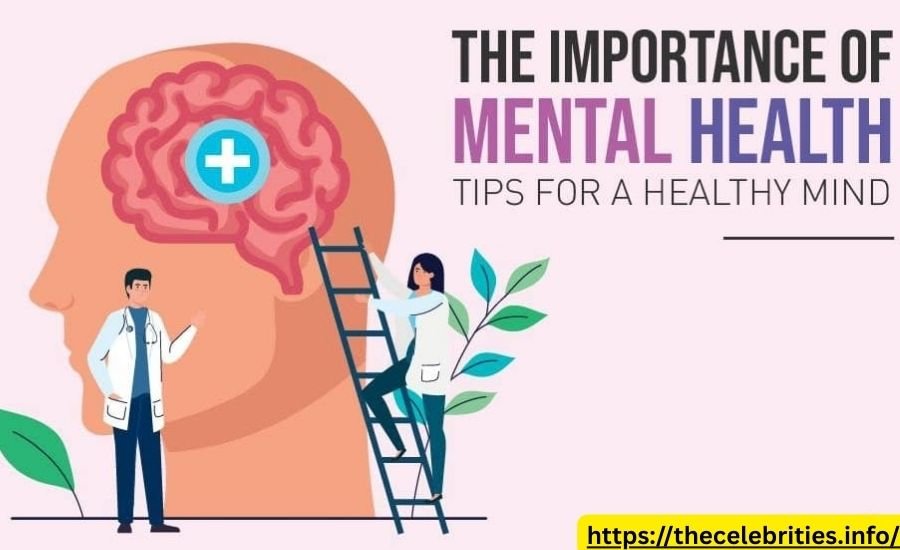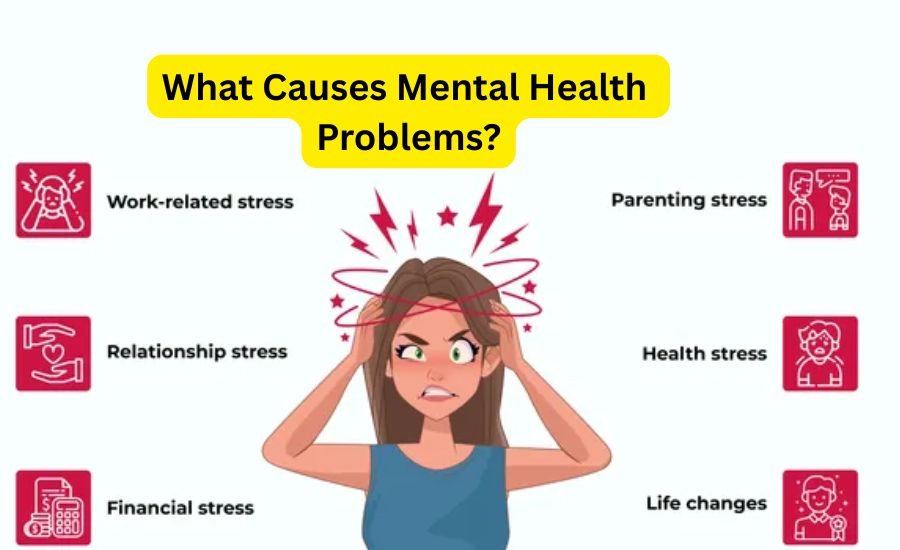
Mental health wellbeing is an essential element of our overall well-being, impacting how we think, feel, and behave in daily life. Just as it’s important to nurture physical health, mental wellness must also be prioritized. It influences our relationships, work performance, and ability to handle stress.
In today’s fast-paced world, mental health challenges are becoming more common. Many people experience anxiety, depression, and stress without realizing how much it impacts their lives. Understanding mental health, its importance, and how to maintain it can lead to a happier, more balanced life.
This guide will explore everything you need to know about mental health, including common disorders, causes, symptoms, treatments, and ways to improve mental well-being.
What is Mental Health?
Mental health refers to an individual’s emotional, psychological and social well-being and plays a crucial role in how we handle stressors, build relationships and make decisions. A healthy mind helps us stay positive, manage emotions, and function effectively in different aspects of life.
When mental health is strong, people can cope with everyday challenges, build meaningful relationships, and work productively. However, when mental health is poor, it can lead to stress, sadness, and difficulty performing daily tasks.
The Importance of Mental Health

Good mental health is essential for a fulfilling life. It affects all aspects of life, from relationships and career success to physical health. Poor mental health can lead to issues such as low energy, lack of motivation, and trouble concentrating.
Mental health is closely connected to physical health. When people experience mental distress, they may also develop physical symptoms such as headaches, body aches, or digestive problems. Chronic stress and anxiety can weaken the immune system, making people more vulnerable to illness.
In the workplace, mental health plays a crucial role in productivity. Employees who struggle with mental health issues may have difficulty focusing, completing tasks, or interacting with coworkers. Businesses that prioritize mental well-being often see higher job satisfaction and improved performance.
Common Mental Health Disorders
Many individuals face mental health challenges throughout their lives. Some conditions are temporary while others need long-term management.Here are some of the most common mental health disorders:
Anxiety Disorders
Anxiety disorders involve excessive worry, fear, or nervousness. While it’s normal to feel anxious occasionally, persistent anxiety can interfere with daily life.
People with generalized anxiety disorder (GAD) often worry about work, finances, or health, even when there is no real threat. Panic disorder, on the other hand, causes sudden and intense panic attacks with symptoms like a racing heart, dizziness, and shortness of breath. Social anxiety disorder makes it difficult for people to interact in social settings due to fear of being judged.
Depression
Depression is one of the most prevalent mental health disorders globally. It goes beyond feeling sad and can affect a person’s ability to enjoy life. Some people experience depression due to life events, while others may have it due to chemical imbalances in the brain.
Symptoms of depression include persistent sadness, loss of interest in activities, fatigue, and difficulty concentrating. In severe cases, it can lead to suicidal thoughts. Seeking professional help is essential for managing depression effectively.
Bipolar Disorder
Bipolar disorder is a condition that causes extreme mood swings. People with bipolar disorder experience episodes of mania (high energy, euphoria, or irritability) followed by periods of depression. Manic episodes can cause individuals to engage in risky behavior or experience racing thoughts, both of which can increase the chance of manic episodes.
Managing bipolar disorder requires a combination of medication, therapy, and lifestyle changes. Proper treatment can help individuals maintain stability in their lives.
You May Also Like: Health-Hub
Schizophrenia
Schizophrenia is an extreme mental condition that alters how an individual thinks, feels, and behaves.People with schizophrenia may experience hallucinations, delusions, or disorganized thinking. It can be a challenging condition to manage, but with proper treatment, individuals can lead fulfilling lives.
Post-Traumatic Stress Disorder (PTSD)
PTSD occurs following exposure to an extremely stressful event such as war, accidents or abuse. People living with PTSD can have flashbacks, nightmares or intense fear even long after the original event has taken place.Therapy and support groups are essential in helping individuals recover from PTSD.
Obsessive-Compulsive Disorder (OCD)
OCD causes persistent, unwanted thoughts (obsessions) that lead to repetitive behaviors (compulsions). Some common compulsions include excessive handwashing, checking things multiple times, or arranging objects in a specific way. Though OCD can be challenging, therapy and medication can provide individuals with effective ways to manage symptoms.
What Causes Mental Health Problems?

Mental health disorders can develop due to various factors, including:
- Genetics – Some conditions, like depression and schizophrenia, can run in families.
- Life experiences – Trauma, abuse, or loss of a loved one can trigger mental health problems.
- Brain chemistry – Imbalances in brain chemicals, such as serotonin and dopamine, can affect mood and emotions.
- Lifestyle factors – Poor diet, lack of sleep, and substance abuse can contribute to mental distress.
Signs of Poor Mental Health
Recognizing early warning signs of mental health challenges can help protect against worsening symptoms and decrease severity.
- Persistent sadness or mood swings
- Feeling anxious or overwhelmed
- Difficulty sleeping or changes in appetite
- Loss of interest in activities once enjoyed
- Trouble concentrating or making decisions
- Withdrawal from friends and family
- Thoughts of self-harm or suicide
How to Improve Mental Health
Taking care of your mental health is essential for overall well-being. Here are some ways to maintain and improve mental health:
- Stay physically active – Exercise releases endorphins that boost mood.
- Eat a balanced diet – Nutritious foods support brain health.
- Prioritize Sleep – Poor rest can contribute to stress and anxiety.
- Practice mindfulness – Meditation and deep breathing can help calm the mind.
- Talk about your feelings – Sharing thoughts with trusted friends or a therapist can be beneficial.
- Limit social media use – Too much screen time can negatively affect self-esteem.
Seeking Professional Help
If mental health issues persist, professional help is crucial. Therapists, counselors, and psychiatrists provide support through various treatments such as:
- Therapy – Talking to a professional can help individuals understand and manage their emotions.
- Medication – Some conditions require medication to balance brain chemicals.
- Support groups – Connecting with others who have similar experiences can be comforting.
The Role of Society in Mental Health
Mental health awareness is growing, but stigma still exists. Many people hesitate to seek help due to fear of judgment. Society plays a significant role in promoting mental well-being by encouraging open discussions and providing resources for those in need.
Workplaces, schools, and communities can contribute by offering mental health programs and creating supportive environments. When people feel accepted and understood, they are more likely to seek help without shame.
Conclusion
Mental health is a crucial part of life that impacts our emotions, relationships, and daily activities. Understanding mental health disorders, their causes, and ways to improve well-being can lead to a happier and more fulfilling life.
Prioritizing self-care, seeking help when needed, and supporting others can make a significant difference. By raising awareness and breaking the stigma, society can create a world where mental health is treated with the same importance as physical health.
FAQS
Q: What is mental health?
A: Mental health refers to a person’s emotional, psychological, and social well-being. It affects how we think, feel, and handle daily life challenges.
Q: What are the common signs of poor mental health?
A: Signs include constant sadness, anxiety, mood swings, trouble sleeping, lack of interest in activities, and difficulty concentrating.
Q: How can I improve my mental health?
A: You can improve mental health by exercising, eating a balanced diet, getting enough sleep, practicing mindfulness, and talking to a trusted friend or therapist.
Q: When should I seek professional help for mental health?
A: If mental health issues interfere with daily life, cause extreme distress, or include thoughts of self-harm, seeking help from a professional is necessary.
Q: Can mental health conditions be treated?
A: Yes, mental health conditions can be managed through therapy, medication, lifestyle changes, and support from loved ones. Early treatment improves recovery chances.
Read Next: Thecelebrities.info




